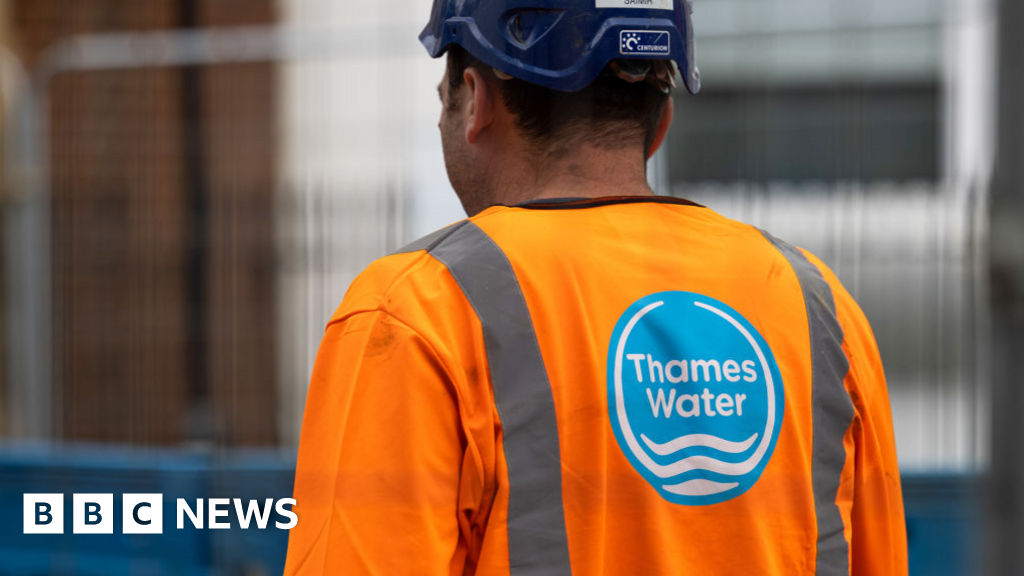Thames Water has been thrown a cash lifeline that will tide the troubled utility giant over until October next year.
The UK’s biggest water group has secured a loan of up to £3bn following fears that it would run out of funding by Christmas.
People close to the deal said it was signed on Thursday evening and shows there is confidence that new and existing investors can reach an agreement to secure the company’s future.
Thames Water’s huge debts have led to speculation it could be taken over by the government, although this would not affect any supplies.
One in four people in the UK rely on Thames for their supply and its customers are facing a steep rise in bills.
In July, the company had told water regulator Ofwat that it wanted to increase annual bills by 23% between 2025 and 2030.
Since then, Thames has said it needed to raise them by 53%.
The BBC understands there are up to six parties interested in taking a stake in Thames Water.
This would happen once the firm’s existing investors have agreed how much of the debt owed to them they are willing to write off and there is greater clarity on by how much Thames can raise household bills.
Chris Weston, chief executive of Thames, which has £16bn worth of debt, said that the new loan has put the firm “onto a more stable financial footing as we seek a long-term solution to our financial resilience”.
The company’s debt will swell to £17.9bn by the end of next March, it confirmed on Friday.
Its finance chief Alastair Cochran said that the UK government is aware of the firm’s position and has kept in close contact during the negotiations over the new loan.
The water industry as a whole is under pressure to improve. Customers’ bills have been rising – and will continue to do so – but sewage spills into England’s lakes, rivers and seas, for example, doubled last year.
The government has set up an Independent Water Commission to lead a “root-and-branch” review into the industry.
Environment Secretary Steve Reed said the aim is to fix the UK’s polluted and “failing” water system.
The commission will be led by the Bank of England’s former deputy governor Sir Jon Cunliffe and will consider a wide range of options including reforming or scrapping the watchdog Ofwat altogether.
Labour has ruled out nationalising the sector which it said would be too slow and too costly.
Instead, it wants to attract investment from the private sector to upgrade pipes, sewers and reservoirs. But in order to persuade companies and funds to pour money into the UK system, customers will face higher bills.
The water industry was privatised in the late 1980s under Margaret Thatcher’s government.

